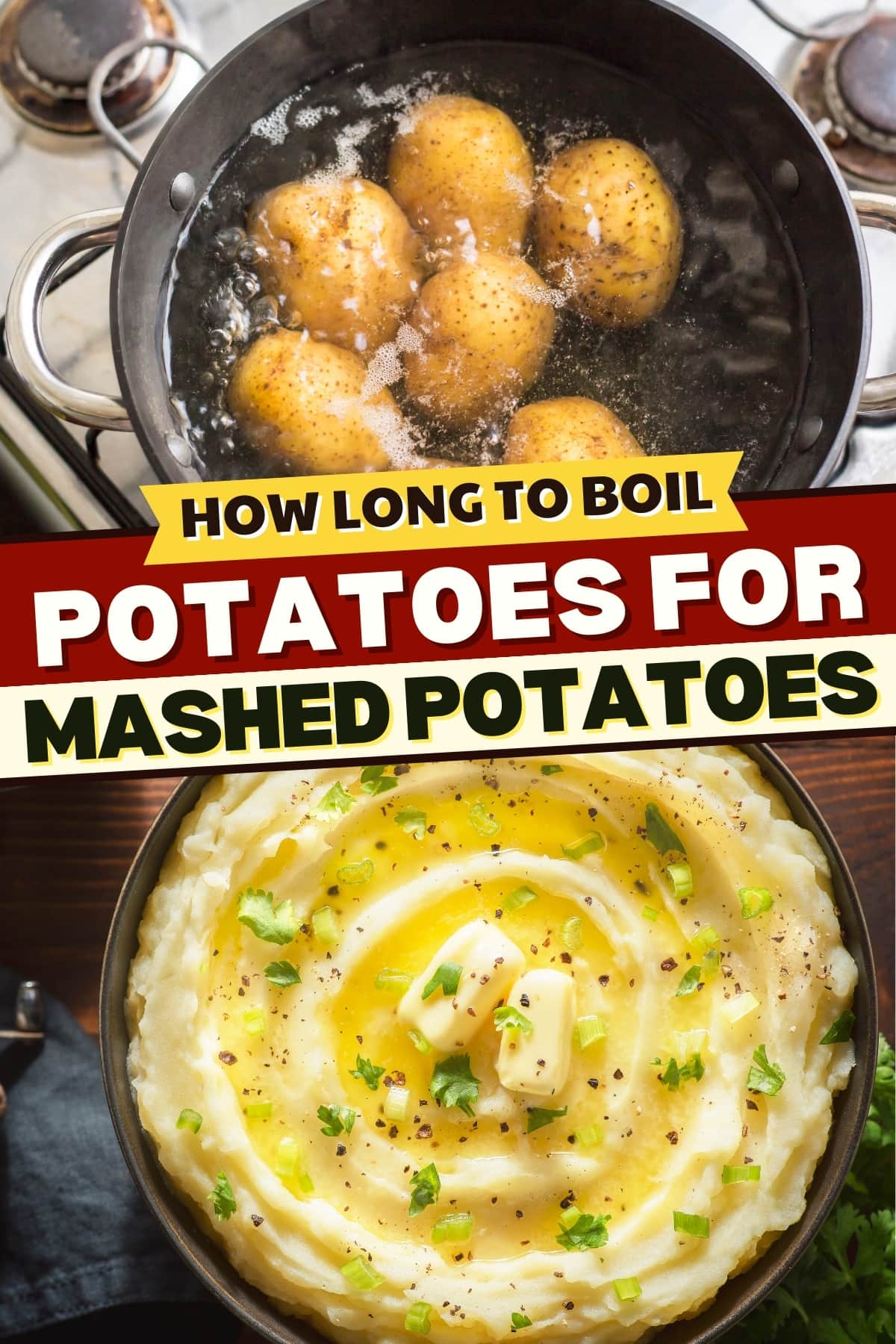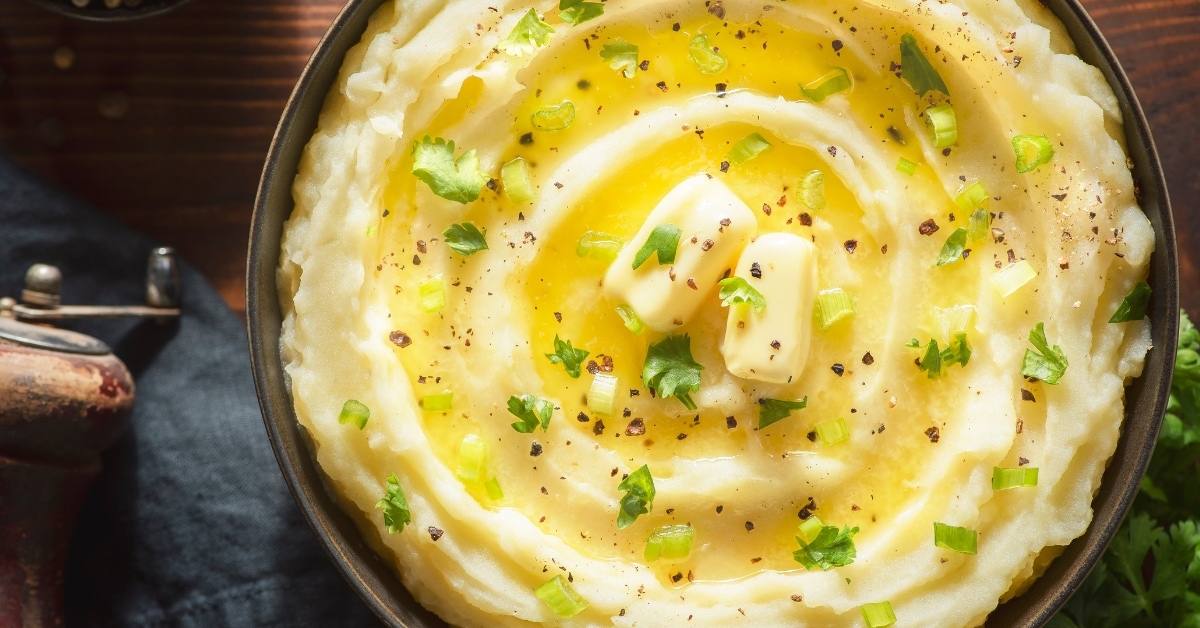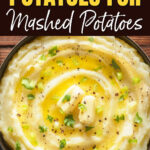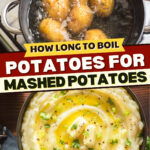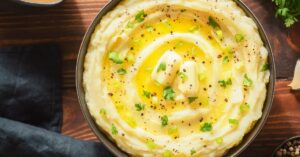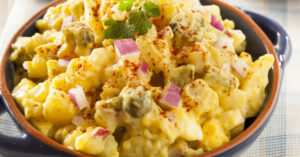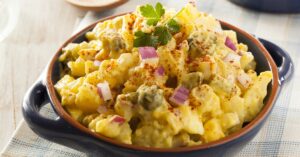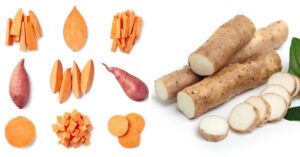When making mashed potatoes, boil potatoes for 15 to 25 minutes, depending on the type of potato and size.
Mashed potatoes are a super easy side dish, but there are a few tricks to becoming a potato pro.
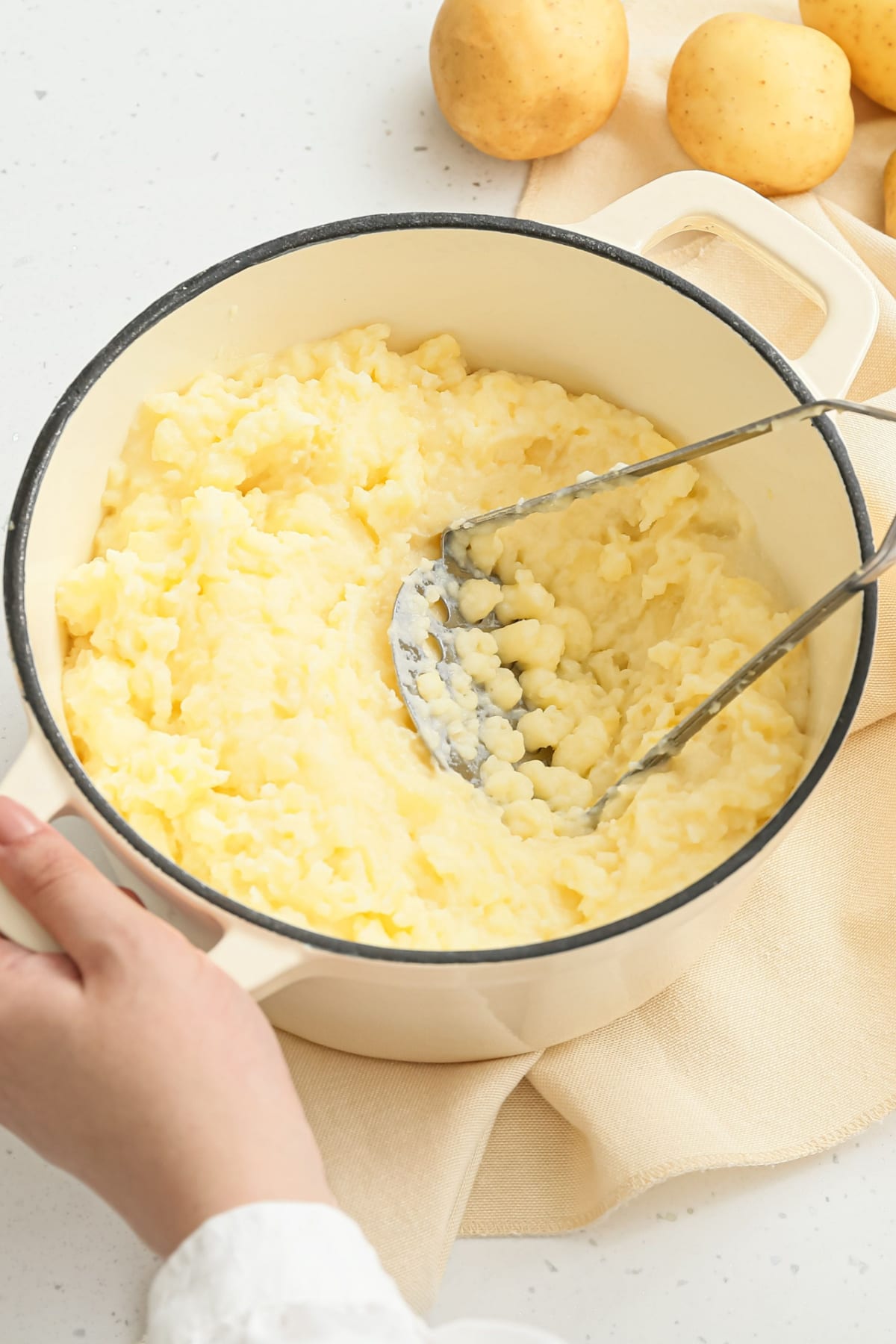
The first step in your journey to mastering mashed potatoes starts with boiling.
The trick is finding the sweet spot so they mash into flaky, buttery potato bliss.
So, grab a stock pot, and let’s take a look at how long to boil potatoes for mashed potato perfection!
How Long to Boil Potatoes for Mashed Potatoes
There isn’t a one-size-fits-all number for potato boiling. It depends upon the size and type of potatoes.
Here’s a quick guide on how long to boil whole of cubed potatoes.
- High-starch potatoes: Spuds like sweet potatoes and Russets take around 15-20 minutes to cook through.
- Medium-starch potatoes: Yukon Golds are a medium starch potato and take a little longer, or about 20-25 minutes.
- Low-starch potatoes: Low-starch potatoes are great for rustic mashes, but won’t be as light and fluffy. Cook low-starch potatoes for only 10 minutes (or they’ll become gluey).
- Cubed Potatoes: If you opt to cut your potatoes into smaller cubes, it takes less time. Cubed potatoes, no matter what the type, take around 15 minutes.
Of course, this is just a general guideline. Use this guide as a template for tasting. As your potatoes reach the suggested cooking time, take one out of the water.
If it still isn’t fork-tender, let them cook for a few more minutes before testing them again.
Do You Put Potatoes in Before or After the Water Starts Boiling?
Always add potatoes to a cold pot of water before you bring it to a boil. It serves two handy functions.
First, it ensures the potatoes cook more evenly. If you place them in a pot of boiling water, the outside cooks faster than the inside.
By placing them in cool water, the inside and outside cook at the same time.
Placing them in cool water also prevents burns. Plopping dense, heavy potatoes in scalding water will splash and burn your hands.
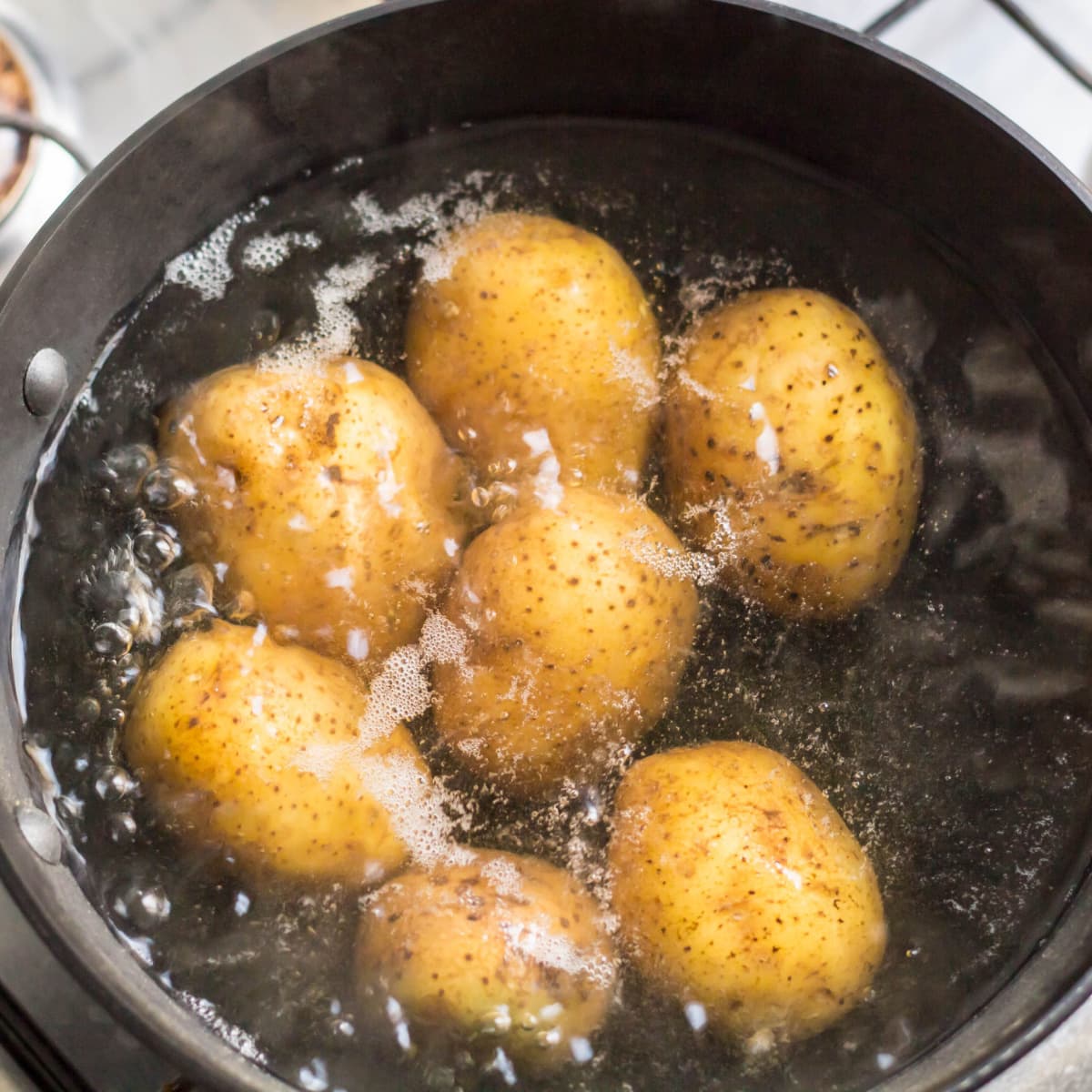
Should You Cover Potatoes When Boiling?
There seems to be a bit of a debate raging on whether to leave potatoes covered or uncovered. I find that leaving them uncovered yields a more even cook.
When you cover the pot, it keeps all that moisture and heat trapped inside. And wherever you lift the lid for a little taste test, it alters the temperature of the water slightly.
Here are the pros and cons of covering your pot vs. uncovered.
- Covered pot: The water quickly comes to a boil, but the potatoes cook unevenly. The outside will be perfectly fork-tender, but the insides may be underdone.
- Uncovered pot: The water takes longer to boil, but the potatoes cook much more evenly. The insides warm at the same rate as the outside, so your potatoes will be fork-tender every time.
How to Tell When Potatoes Are Boiled Enough to Mash
Timing your potatoes is only half the battle. Not all potatoes are created equal, so you must check in on them to assess their doneness.
The key to perfect mashed potatoes demands vigilant fork-testing. When your potatoes reach the suggested cooking time, dip a fork into the water and pierce one of the potatoes.
If the fork glides through like butter, they’re done cooking. If the insides are still firm, add a few more minutes to the timer.
If you try to mash slightly undercooked potatoes, they’ll be lumpy. And no one wants lumpy mashed potatoes!
Can You Over Boil Potatoes?
Yes, you can over-boil potatoes, even for mashed potatoes.
If your potatoes are overly boiled, they absorb water and will be mushy. Overcooked spuds will create incredibly wet and soupy mashed potatoes.
And when potatoes are soupy, you can’t make them firm again.
Always pay close attention to that stock pot. Remove them from the heat and drain as soon as they’re fork-tender.
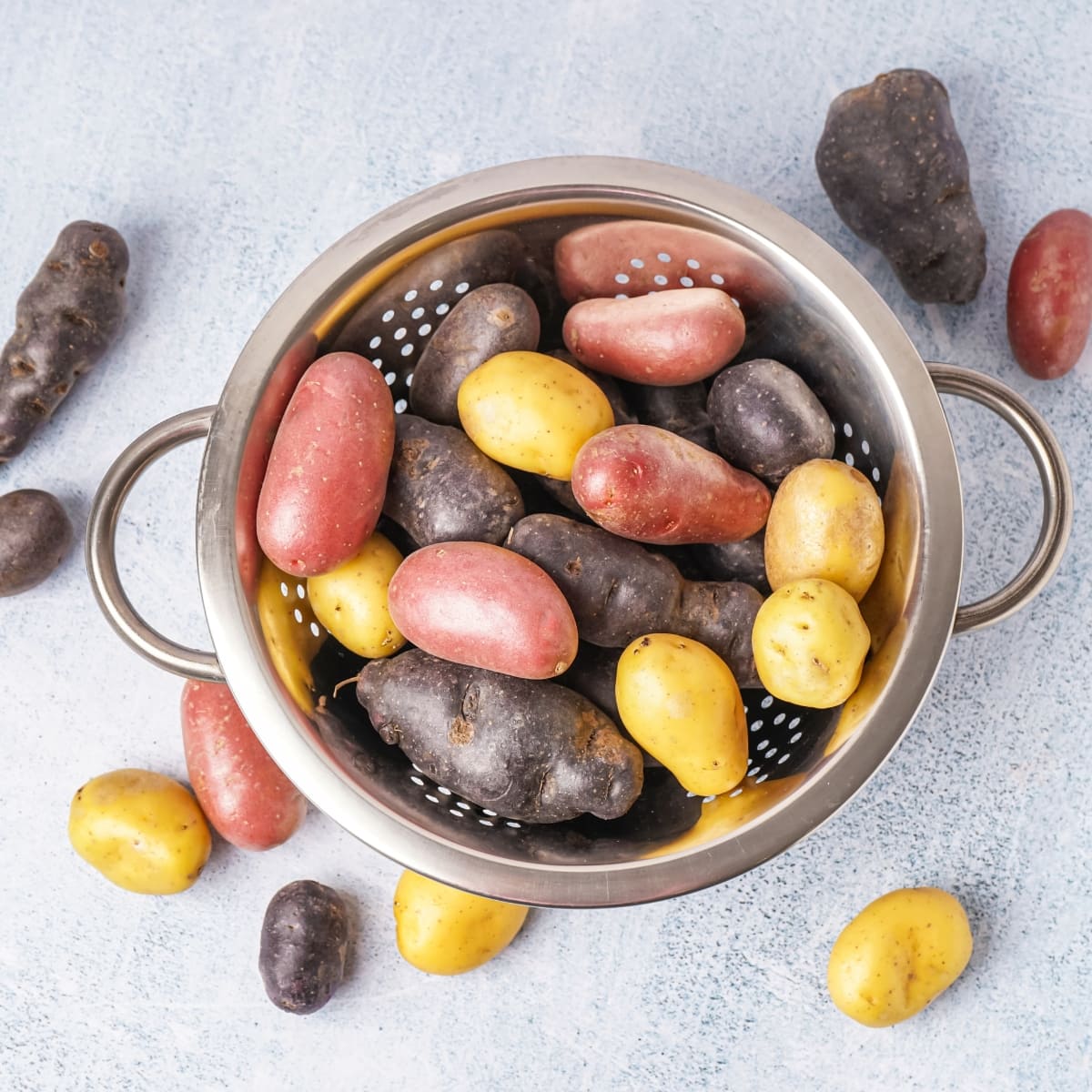
Best Potatoes for Mashed Potatoes
For fluffy mashed potatoes, you want spuds with a high starch content. They absorb water like a dream and create dreamy, fluffy mashed potatoes.
Here are some great suggestions for high-starch potatoes.
- Russets
- Yukon Gold
- Peruvian Blue
- Sweet Potatoes
- Idaho
Ideally, a mixture of Russet and Yukon Gold work together to create the perfect blend of creamy and fluffy. If you really want to impress with your mashed potato game, use a little of both.
While you can use waxy potatoes, like Red Gold, they’ll be very dense and a little lumpy. They make great rustic mashed potatoes!
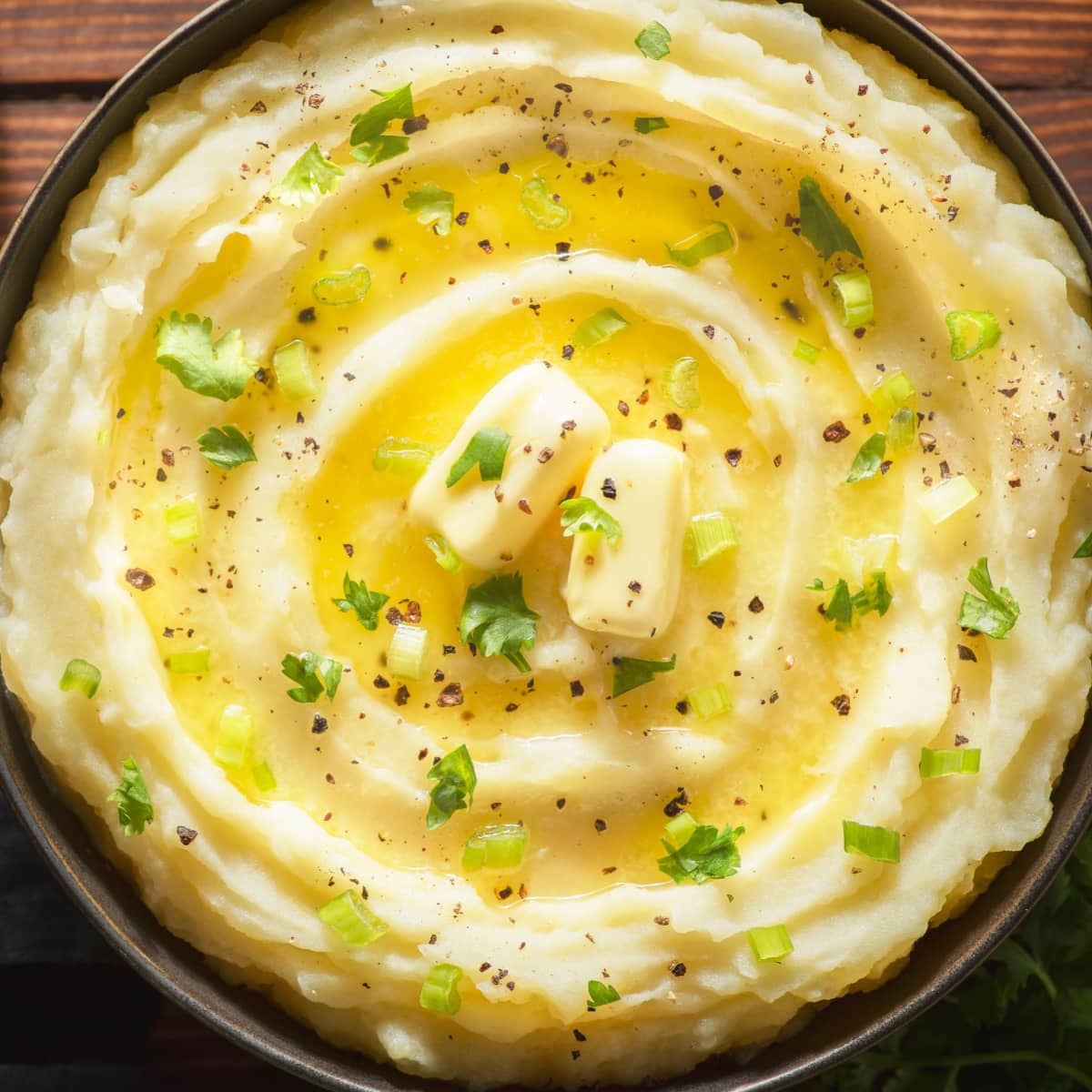
Tips for the Best Mashed Potatoes
So, you’ve mastered the art of perfectly cooked spuds. What’s next?
Check out these tips for the perfect buttery and creamy mashed potatoes!
- Double your pleasure. Use warm butter and cream. Before adding your butter and cream, allow it to warm up in a small saucepan on the stove. Then, add it to your mashed potatoes. It will help it incorporate better for super creamy mashed potatoes.
- Invest in a potato masher. You can always use a fork to fluff up those spuds, but a potato masher makes your life so much easier. It works much more quickly than a fork and ensures your potatoes are lump-free!
- Never put the potatoes in a blender! Placing potatoes in a blender sounds like a great idea for super creamy potatoes. But it’s not! The blades of a blender tear apart the starches, and it will make your potatoes gluey.
